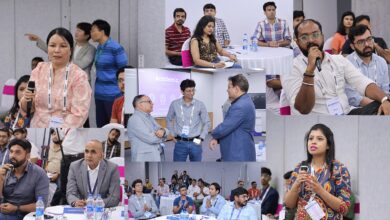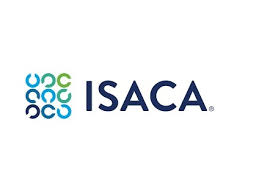Budget Expectations from India’s Mid-Level Professionals

IET India recently released findings from its report “Voices from the Ground: The Unheard Impact of COVID-19 on India’s Workforce“. The report captures the concerns regarding the uncertainties post-COVID-19 on India’s workforce across sectors and various career stages. The key challenges faced by professionals in the tech, mobility and work spheres need to be addressed by the government. Based on the results of the survey, the following are a few key expectations from Budget 2021:
Increase in EV adoption and infrastructure development: Recent laws allowing the sale of EVs without batteries, and customers paying for batteries as fuel through battery swapping, form an inflection point in India’s EV journey. However, the EV Industry in India is still in its nascent stage, facing key challenges in the form of high import duties, lack of lithium battery manufacturing infrastructure and difficulty in providing financing options. The government would need to take stalk of the situation and nurture the EV ecosystem.
Key Budget Recommendations for the EV Ecosystem:
- Policy relaxations need to be provided in the Budget that will promote domestic manufacturing of parts.
- The government needs to kick-start the domestic production of lithium-ion cells
- Reduced import duties on lithium-ion cells should be announced to make EVs affordable
- Government should prioritize loan schemes to make EVs more attractive for prospective buyers, especially in commercial segments.
- Government needs to develop infrastructure in terms of power generation and distribution that can support charging stations and various modes of transportation
Augmented public transport: Augmented Reality is emerging as the perfect tool to simplify mega transport networks and systems and make them more understandable and personalised. There is immense potential for development which needs to be recognised by the government. AR & VR organizations need to be supported in order to bring about a true and efficient transformation in the transport sector.
Key Recommendations:
- Infrastructure development needs to be the prime focus for integrating Augmented Reality into transportation Grids
- Tax benefits need to be provided to organisations specially start-ups to help provide a push to the industry
- The wealth creation potential of AR & VR Organizations can be easily tapped if listing probabilities are unlocked in our stock markets.
Workplace as an ecosystem: Workplaces need to be flexible. They need to enable changes as rapidly as people and organisations require. Individuals and teams will choose the right space based on the task required and where they feel the most productive. Work from Home has become a norm and is expected to stay so going forward. With the after effects of COVID-19 devastating the economy and the job market, loss of employment and pay cuts have been common.
Key Recommendations:
- Tax relief needs to be provided to professionals facing pay-cuts or loss of income due to the pandemic
- Due to Work From Home, professionals have had to make additional investments of home infrastructure facing tax liabilities. Under the circumstances such professionals need to be provided with benefits to ease the burden of taxation
- Professionals need to be provided with better financing options in order to invest in infrastructure and get through difficult financial circumstances.
Shekhar Sanyal, Director and Country Head, IET India, said, “Our study with close to 1,000 participants revealed some of the long-term future impacts in the area of mobility, tech and work that people are bracing for in a post pandemic world. For the world we have illustrated in the report, concerted efforts need to happen propped by robust and creative policies. We are hopeful to continue working with the stakeholders to formulate the roadmap for futuristic policies that have people at the centre.”
The Budget 2021 holds immense importance under today’s circumstance looking towards restarting the economy and reviving it. At such a crucial moment it is essential that policy makers understand in depth the ramifications of the pandemic on the Indian Work-force, what is the true need of the hour and how this need in to be addressed. IET India report “Voices from the Ground: The Unheard Impact of COVID-19 on India’s Workforce” provides deep insights into the needs of the professionals and helps identify areas where governmental intervention is crucial.
The Institution of Engineering and Technology
The IET is one of the world’s largest professional societies for engineers, headquartered in the UK. Turning 150 this year, the IET works closely with industry, academia and government in its mission to engineer a better world. In line with this, the IET also has specific global initiatives around key sectors that are relevant to solving problems that impact the society at large. In India, the IET has over 13,000 members and has wide ranging activities in alignment with the overall global IET strategy that also includes sector focus in areas such as Future technologies. Future of Mobility and Transport, as well as the Future of Work. Eminent engineers like Shri Ratan Tata, Former Chairman Tata Sons, N R Narayana Murthy, Chairman Emeritus, Infosys and T V Ramachandran, President, Broadband India Forum (Ex-Resident Director, Vodafone) are Honorary Fellows of the IET.
With our members, we are driving innovation and change in the fields of engineering and technology. We research, investigate, review and analyse the industry’s challenges, proposing solutions that will have a significant impact on the world for years to come.
![]() This feed is automatically published via newsvoir.com
This feed is automatically published via newsvoir.com


